A Pakistani's Shenzhen journey: Forging a future in nuclear safety
Writer: Chen Siqi | Editor: Lin Qiuying | From: Original | Updated: 2025-09-12
For Hamza Saeed Khan, a Pakistani doctoral candidate at Shenzhen University (SZU), his academic journey is more than a personal ambition — it’s a journey fueled by the energy needs of his homeland and the cutting-edge innovation of Shenzhen.
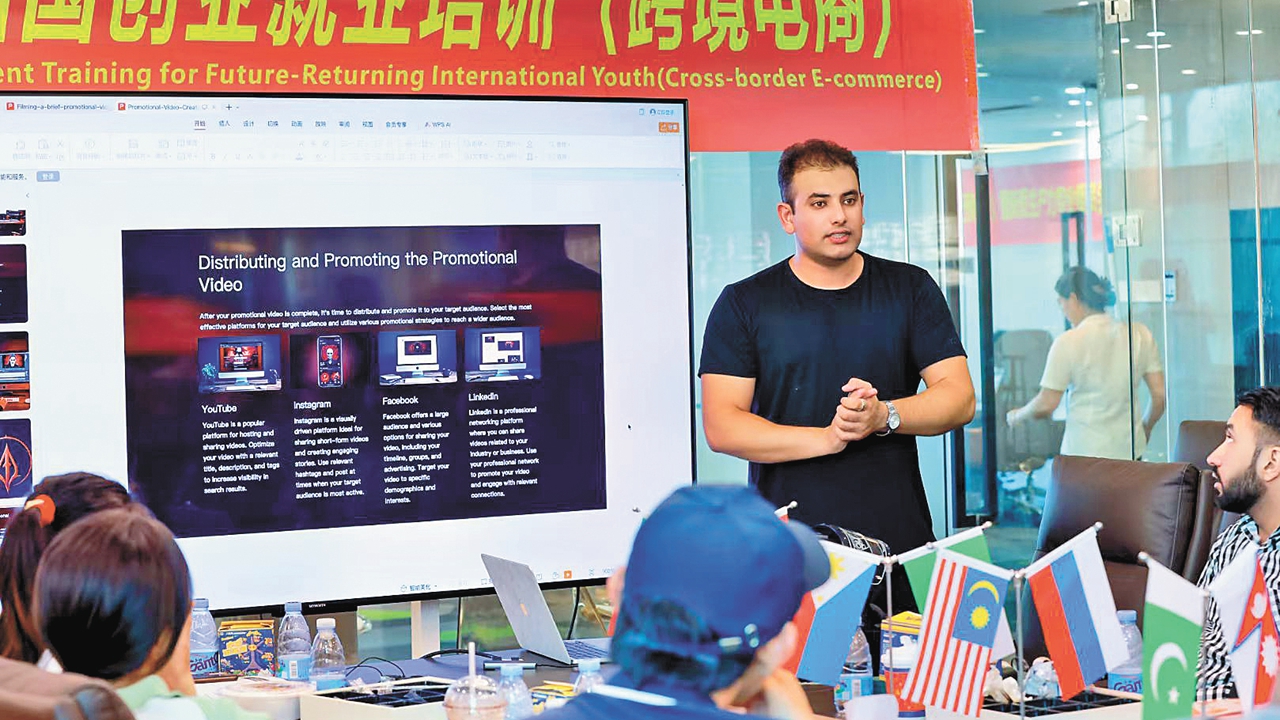
Hamza Saeed Khan gives a presentation on e-commerce to SZU fellows at the university in August 2024. Photos courtesy of the interviewee
After pursuing a master’s degree at Harbin Engineering University from 2020 to 2023, Khan returned to China in March 2024. For the past year and a half, he has been immersed in life in Shenzhen, a city he deliberately chose as the incubator for his future.
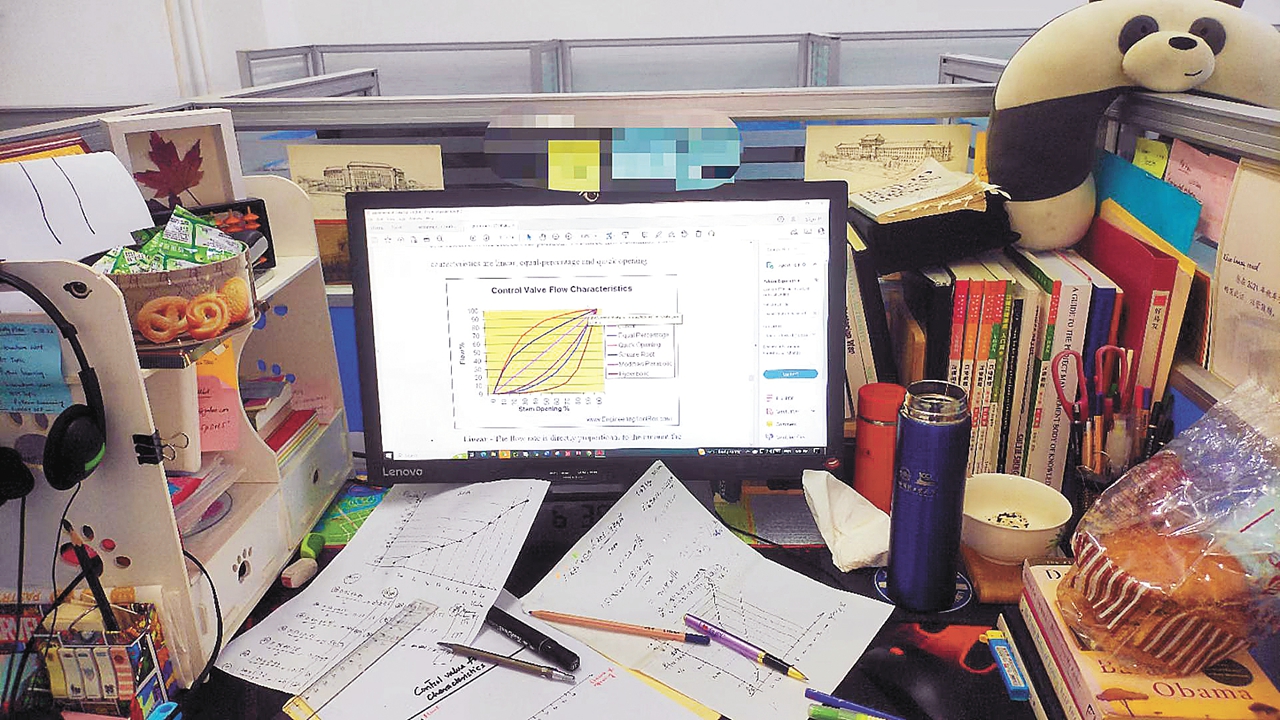
Hamza Saeed Khan’s desk at Harbin Engineering University.
“China has made remarkable progress in various fields, especially in science and technology,” Khan noted. “Shenzhen, in particular, attracted me because it is a dynamic city known as the ‘Silicon Valley of China.’ It has a strong industry-academia-research connection.”
Pursuing a Ph.D. in SZ
He is currently studying nuclear energy and safety at SZU’s Institute of Advanced Study. Before embarking on his Ph.D. studies, Khan worked for China National Nuclear Corp. (CNNC) as a nuclear power plant systems engineer at the K-II and K-III units in Karachi, Pakistan — flagship projects of the China-Pakistan Economic Corridor (CPEC).
“It was there I felt the growing importance and potential applications of advanced safety research,” he explained. Determined to secure a future at the forefront of his field, he made a pivotal decision to return to China for a doctorate.
After months of outreach, a connection led him to a professor at SZU. Without hesitation, he resigned from his job and embarked on a new academic path in Shenzhen.
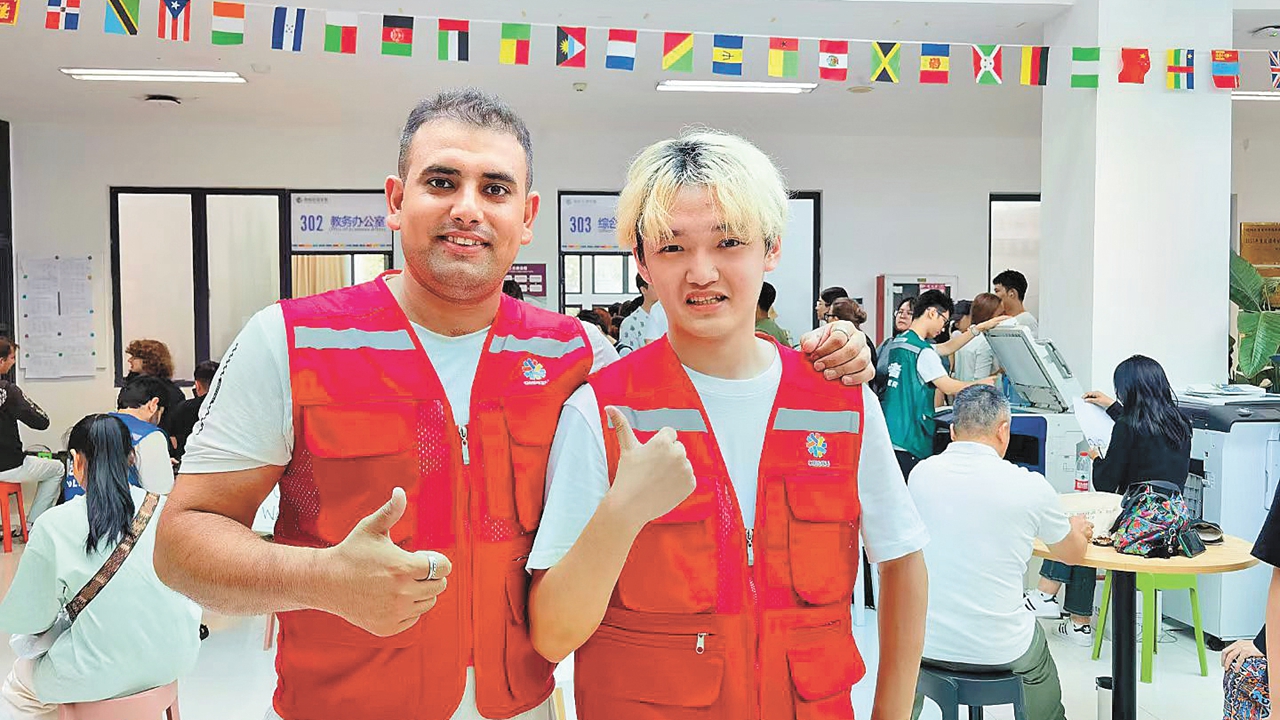
Hamza Saeed Khan (L) poses for a photo with his friend while doing volunteer work at SZU's College of International Exchange in March 2025.
Pursuing a Ph.D. is notoriously demanding, requiring immense focus on literature reviews, complex experiments, and high-level academic writing. Khan manages this workload through strict discipline and balance.
“I set a strict schedule,” he said. “I allocate specific hours for research, reading, and writing during the day. In the evenings or on weekends, I make sure to engage in activities I enjoy.” These activities include dinners with friends, a game of snooker, or swimming and working out at the university’s sports complex. “This helps me relax and come back to my studies with a refreshed mind.”
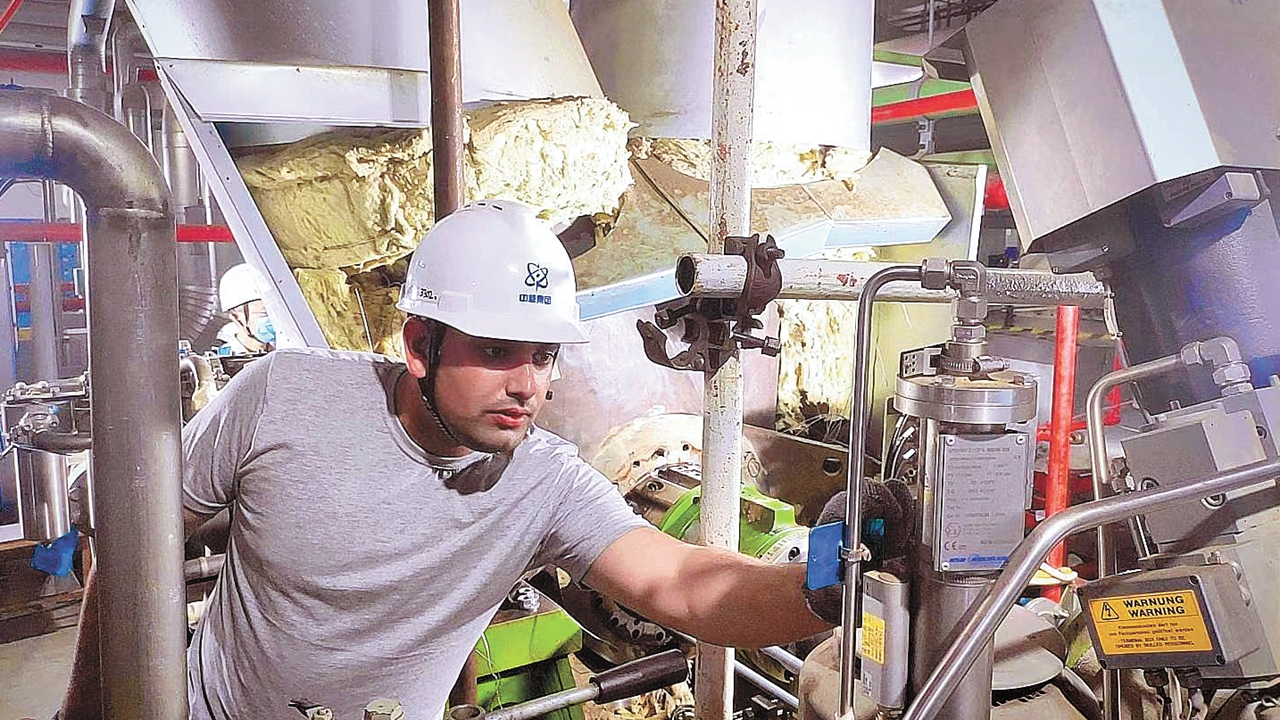
Hamza Saeed Khan checks water pumps in the turbine building in a nuclear power plant in Karachi, Pakistan in November 2023.
His research, assigned by his professor, focuses on summarizing prior work concerning safety and safety culture in nuclear power plants. He is currently putting the finishing touches on a paper that he is the first author on and is expected to be published in the coming months. He has also collaborated on another paper concerning AI systems.
Broadening horizons
Life in Shenzhen has contributed significantly to both his personal and professional development.
“Personally, it has broadened my cultural horizons. I’ve interacted with people from different backgrounds, learned about Chinese culture, and improved my cross-cultural communication skills,” he said.
Professionally, he values the exposure to advanced research facilities, industry-leading projects, and top-tier scholars. “The city’s innovative environment fosters creativity and problem-solving skills, which are crucial for my future career,” Khan added.
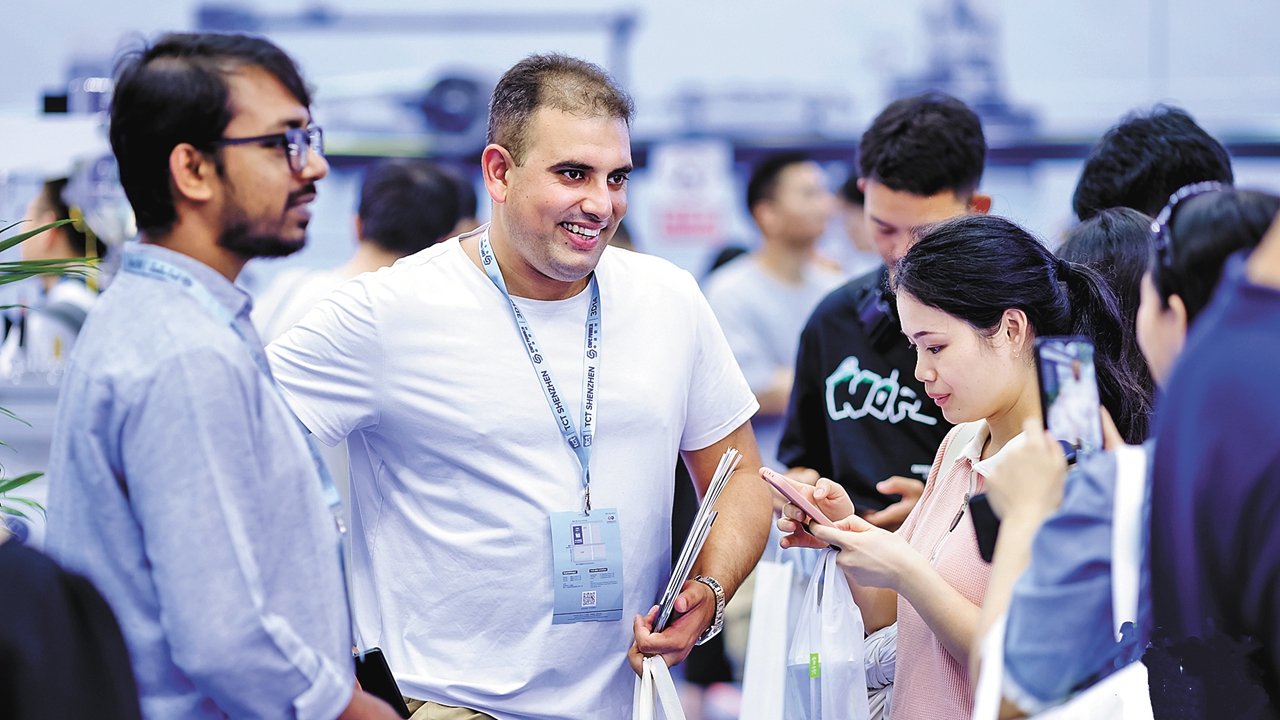
Hamza Saeed Khan interacts with exhibitors at TCT Shenzhen 2025, a fair for the 3D printing and additive manufacturing intelligence industries, at the Shenzhen Convention and Exhibition Center on Wednesday.
When he is not in the lab or the library, Khan explores the city through his hobbies of photography and hiking. His camera captures the contrast of Shenzhen’s modern skyscrapers and serene natural landscapes, while hikes up Wutong Mountain and through Lianhua Hill Park offer a respite from his studies and a unique perspective on the city he now calls home.
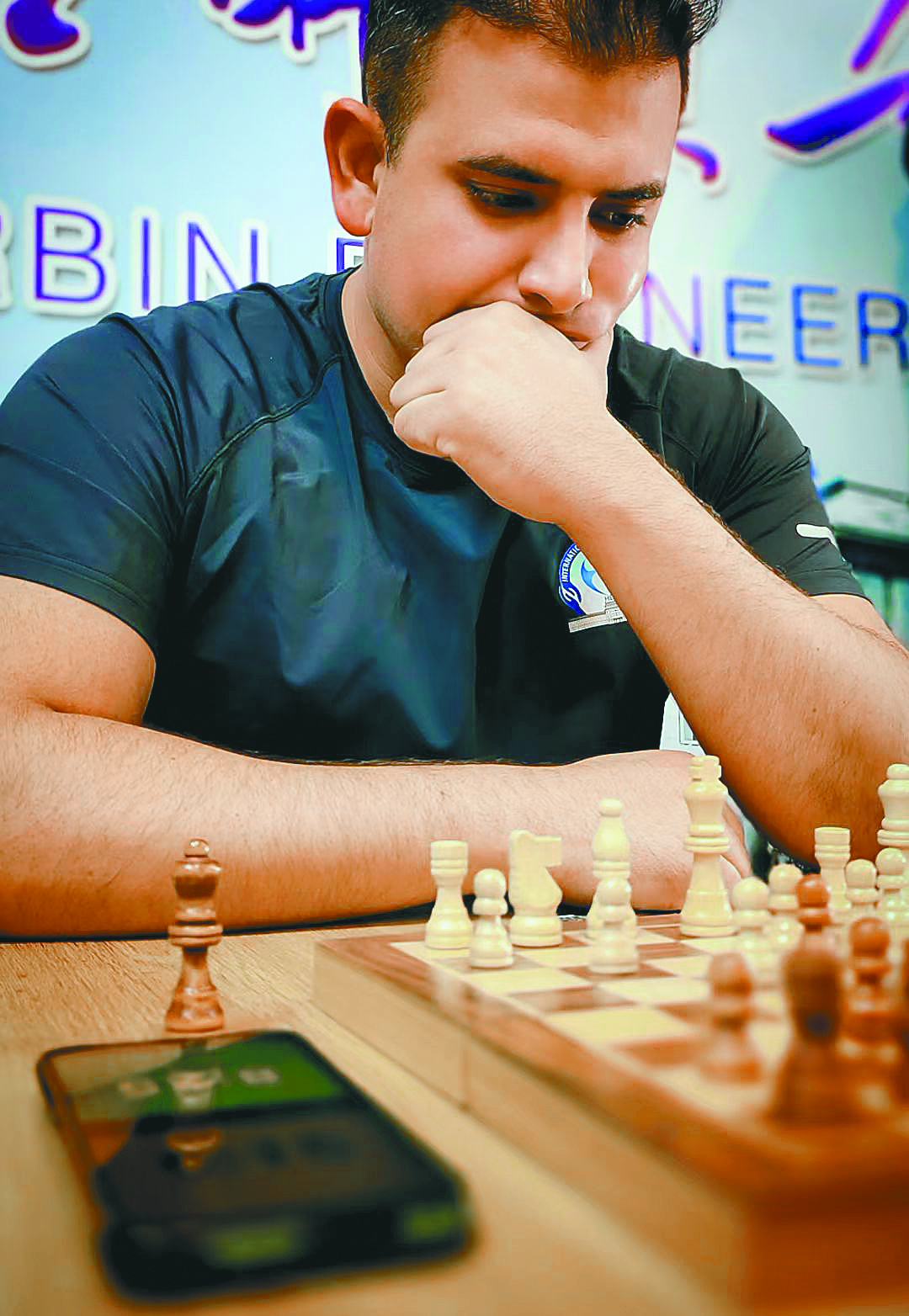
Hamza Saeed Khan during a chess competition at Harbin Engineering University in 2023.
A future forged in cooperation
Looking ahead to his graduation in 2027, Khan is keeping his options open. Shenzhen’s thriving industry and research ecosystem presents an attractive opportunity to apply his knowledge. Yet, he is also interested in international opportunities.
“The decision will be based on the best career prospects available at that time,” he said.